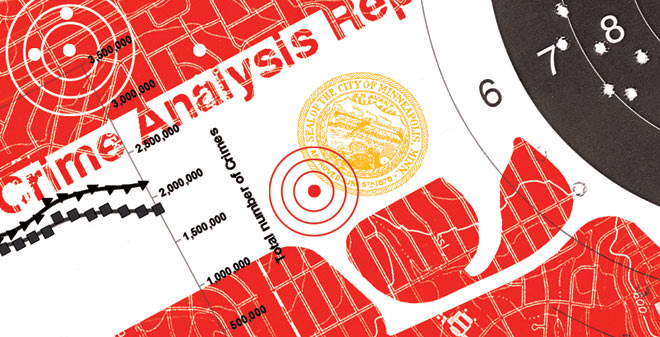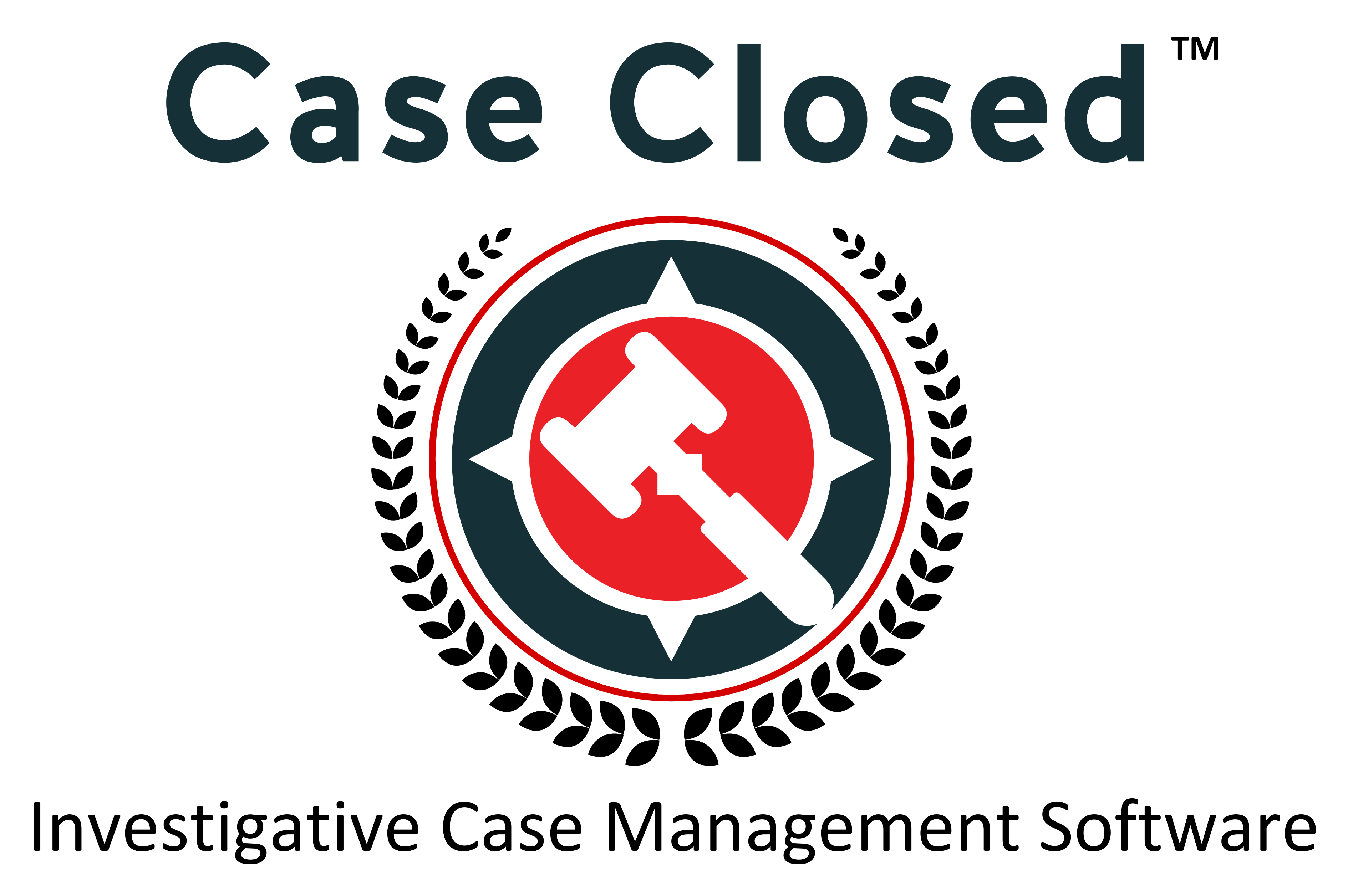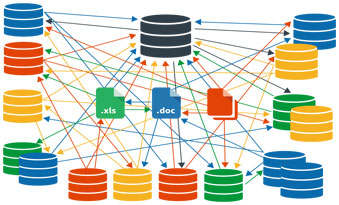Great article from PoliceMag.com, originally posted HERE.
 Since its introduction nearly a decade ago, big data in the form of analytics has helped police agencies all over the world enhance decision making, improve strategies to combat crime, and ultimately solve—and prevent—more crimes. But while the benefits of mining and critically analyzing huge amounts of data are being realized in other developed countries from the United Kingdom to Canada to New Zealand, U.S. law enforcement agencies have generally been slower to jump on the bandwagon.
Since its introduction nearly a decade ago, big data in the form of analytics has helped police agencies all over the world enhance decision making, improve strategies to combat crime, and ultimately solve—and prevent—more crimes. But while the benefits of mining and critically analyzing huge amounts of data are being realized in other developed countries from the United Kingdom to Canada to New Zealand, U.S. law enforcement agencies have generally been slower to jump on the bandwagon.
The reasons for slower adoption of big data tools in the United States are as varied as the nearly 18,000 state and local law enforcement agencies around the country. For many, the decision to buy or not to buy advanced crime analytics software often comes down to the usual culprit: lack of money. With few exceptions, police agencies across the country are faced with the prospect of doing more with less. And with increased pressure on local departments to put more feet on the street, do more in terms of community policing, and divert funding to equip all officers with body cams, it’s often hard for departments to make big data solutions a top priority.
Money, however, is not the only issue slowing analytics adoption in the U.S. Unlike countries such as the U.K., the American law enforcement community is decentralized. It does not have a single system of data, standards, and operations. Rather, police departments here pride themselves on their individuality and independence. Walk into a meeting where 10 different departments are represented and you will likely see 10 different colors of uniforms.
The same holds true when it comes to information sharing. While it is often assumed that police departments all work in close cooperation with each other, the reality may be quite different.
 None of this is news, nor is it a criticism of U.S. police departments. It simply reflects Americans’ independent nature and the way in which law enforcement in this country is structured. It’s the thing that makes us great but, in the case of analytics, it’s also a major factor slowing analytics adoption.
None of this is news, nor is it a criticism of U.S. police departments. It simply reflects Americans’ independent nature and the way in which law enforcement in this country is structured. It’s the thing that makes us great but, in the case of analytics, it’s also a major factor slowing analytics adoption.
Big data adoption is also hampered by the sheer size of the U.S. Sure, from a pure geographic standpoint, the U.S. and Canada are similar in size. But most of Canada’s people live in Ontario or on the West Coast, near Vancouver. There are just over 200 police departments in all of Canada. Compare that to the U.S., where there are huge differences in the make-up of the population, not to mention lifestyle, attitudes, and so much more between, say, the Southwest and the Northeast.
Law enforcement policy-makers on the East Coast don’t know what to make of their counterparts on the West Coast and vice versa. Similarly, the day-to-day needs and demands placed on a police chief in Kansas City can’t help but be very different from those of his or her peers in Chicago, Los Angeles, Seattle, or Philadelphia.
 All of these factors have contributed to slowing the adoption of analytics by U.S. police agencies. They are also complicated by perhaps the most intangible impediment: fear of technology. Whether they like to admit it or not, some law enforcement leaders are more comfortable taking an “old school” approach to police work. They prefer business as usual, which means feet on the street and files stacked on their detectives’ desks, not sleek, state-of-the-art technology.
All of these factors have contributed to slowing the adoption of analytics by U.S. police agencies. They are also complicated by perhaps the most intangible impediment: fear of technology. Whether they like to admit it or not, some law enforcement leaders are more comfortable taking an “old school” approach to police work. They prefer business as usual, which means feet on the street and files stacked on their detectives’ desks, not sleek, state-of-the-art technology.
Change is never easy, especially when tried-and-true policing methods have proven to be effective. Decentralization also plays a part here – it’s easier to take technology risks when it’s mandated from above and much harder for the nearly 18,000 law enforcement chiefs in the U.S. to each take a step into the unknown. Nevertheless, change is coming, spurred in large part by the fact that the cost of advanced crime analytics is coming down.
Also easing the impact of costs to local agencies will be the dollars for big data solutions coming from the federal government. Those funds come with a catch, however, that gets at another obstacle. A significant portion of federal funds in the future will be earmarked for supporting regional initiatives. That means to be eligible for federal funds, many departments will have no choice but to work with their colleagues across jurisdictional boundaries. And while that may bring some initial resistance, regional cooperation will inevitably help to promote not just data sharing, but overall effectiveness.
 The public is also demanding increased police effectiveness and efficiency. Responding to that pressure, police chiefs are recognizing that big data solutions can have a huge impact on reducing the number of man-hours it takes to sift through mountains of data in order to solve crimes. This is particularly important as law enforcement finds itself confronting not only the standard array of home break-ins, car thefts, and the like, but also the threat of “lone wolf” terrorist attacks, cybercrime, and highly sophisticated international trafficking rings.
The public is also demanding increased police effectiveness and efficiency. Responding to that pressure, police chiefs are recognizing that big data solutions can have a huge impact on reducing the number of man-hours it takes to sift through mountains of data in order to solve crimes. This is particularly important as law enforcement finds itself confronting not only the standard array of home break-ins, car thefts, and the like, but also the threat of “lone wolf” terrorist attacks, cybercrime, and highly sophisticated international trafficking rings.
Fortunately, as analytics software has become more affordable, it has also become easier to use. No longer the exclusive domain of the IT department, newer big data solutions are now designed to be used by front line analysts and investigators, with just one or two days of training and without the need for sophisticated oversight.
This has dramatically changed the role of law enforcement analysts. Formerly the department statistician, today’s analyst has become a critically important member of the crime fighting team, capable of rapidly moving from tactical analysis to the focal point of providing intelligence on high-profile crimes and strategic crime-fighting initiatives.
Ease of use also comes into play as a new generation of officers, many of whom were raised on Google and Xbox, begin to take on leadership roles in their departments. These individuals are used to having the latest technology at their immediate disposal. They will readily see that a big data solution can not only play a critical role in more effective policing, but also pay for itself in savings of both time and money.
 The growing use of cloud computing plays a role in this equation. Storing data in the cloud is becoming accepted as safe and secure, bringing with it economic advantages and removing the need for departments to provide highly specialized IT staff and infrastructure previously required to support analytical solutions.
The growing use of cloud computing plays a role in this equation. Storing data in the cloud is becoming accepted as safe and secure, bringing with it economic advantages and removing the need for departments to provide highly specialized IT staff and infrastructure previously required to support analytical solutions.
All of these factors are combining to change the face of effective policing in the U.S. That will mean significantly greater acceptance of analytics to mine everything from social media files, emails, text messages, and the content of police RMS systems to phone records, license plate reader data, and ballistics data. Efficiencies of scale will dictate greater cooperation among departments, resulting in increased efficiency and more effective policing. Being able to quickly search and find critical information in data that police agencies already have in hand will undoubtedly improve decision making and officer safety, while helping to solve cases more quickly.
 Crime Tech Solutions, who earlier this year acquired TN based Case Closed Software, delivers unique value to customers with comprehensive investigative case management software, sophisticated link analysis tools, criminal intelligence management software, and crime mapping technology that includes some of the industry’s best analytics and reporting capabilities.
Crime Tech Solutions, who earlier this year acquired TN based Case Closed Software, delivers unique value to customers with comprehensive investigative case management software, sophisticated link analysis tools, criminal intelligence management software, and crime mapping technology that includes some of the industry’s best analytics and reporting capabilities.
Category Archives: crime analysis
Crime Tech Solutions’ continued growth fuels management team expansion
September 13, 2016 – (Leander, TX) Crime Tech Solutions, a fast-growing provider of low cost crime fighting software and analytics today announced the appointment of Kevin Konczal as Vice President of Sales. The company created the position in response to rapid growth in market share for crime analysis and investigative case management software.
 Mr. Konczal is a seasoned start-up and marketing expert with over 30 years of diversified business management, marketing and start-up experience in information technology and consumer goods. Additionally, Konczal has over two decades of Public Safety service as a police officer, Deputy Sheriff and Special Agent.
Mr. Konczal is a seasoned start-up and marketing expert with over 30 years of diversified business management, marketing and start-up experience in information technology and consumer goods. Additionally, Konczal has over two decades of Public Safety service as a police officer, Deputy Sheriff and Special Agent.
Most recently, he held the position as a Regional Sales Manager for TriTech Software Systems, a leading provider of public safety software.
“Kevin is a seasoned executive with a combination of public service and information technology expertise”, said Crime Tech Solutions’ chief technology officer Keith Weigand. “The management team is looking forward to adding his leadership within the sales organization.”
In addition to his executive career, Konczal serves on several advisory boards, commissions and boards of directors. He attended Oakland College studying Criminal Justice and completed the Dallas Police Academy. Notably, he was awarded the Police Commendation Award for saving the lives of fellow officers in a deadly force c onfrontation.
onfrontation.
“The exciting thing about Crime Tech Solutions”, added Konczal “is their clear position as a fast-growing company dedicated to low price and high performance software for law enforcement.”
“I’m looking forward to working with a company that delivers true value to customers with comprehensive investigative case management software, sophisticated link analysis tools, criminal intelligence management software, and crime mapping technology that includes what I think are the industry’s best analytics and reporting capabilities”, he added.
Earlier this year, Crime Tech Solutions acquired Tennessee based Case Closed Software (www.caseclosedsoftware.com).
About Crime Tech Solutions
Crime Tech Solutions (www.crimetechsolutions.com) is a fast-growing U.S. based provider of low cost / high performance investigation software and crime analytics. The company proudly supports the International Association of Crime Analysts (www.iaca.net), International Association of Chiefs of Police (www.iacp.org), the National Sheriff’s Association (www.sheriffs.org), and the association of Law Enforcement Intelligence Units (www.leiu.org).
The company’s products include Case Closed investigative case management software, link and social network analytics, 28 CFR Part 23 compliant criminal intelligence management software, enterprise search for law enforcement, and crime analytics with mapping, reporting, and predictive policing.
Civil Rights and Tech Advocates Sound Alarm on Racial Bias in "Predictive Policing"
From the newswire: http://www.commondreams.org/newswire/2016/08/31/civil-rights-and-tech-advocates-sound-alarm-racial-bias-predictive-policing
 WASHINGTON – Today a broad coalition of civil rights, privacy, and technology organizations issued a sweeping rebuke to the use and misuse of predictive policing products by police departments as the technology and policy firm Upturn released a report on the topic.
WASHINGTON – Today a broad coalition of civil rights, privacy, and technology organizations issued a sweeping rebuke to the use and misuse of predictive policing products by police departments as the technology and policy firm Upturn released a report on the topic.The 17 organizations signed a shared statement of civil rights concerns about the systemic flaws, inherent bias, and lack of transparency endemic to predictive policing products and their vendors. The groups point out how these products exacerbate deep dysfunction and disproportionate policing practices that are “systemically biased against communities of color and allow unconscionable abuses of police power.”
Signers of the statement include The Leadership Conference on Civil and Human Rights, 18 Million Rising, American Civil Liberties Union, Brennan Center for Justice, Center for Democracy & Technology, Center for Media Justice, Color of Change, Data & Society Research Institute, Demand Progress, Electronic Frontier Foundation, Free Press, Media Mobilizing Project, NAACP, National Hispanic Media Coalition, Open MIC (Open Media and Information Companies Initiative), Open Technology Institute at New America, and Public Knowledge.
A new report entitled “Stuck in a Pattern” from the technology and policy firm Upturn — released with today’s statement — finds “a trend of rapid, poorly informed adoption” of predictive policing, with “pervasive, fundamental gaps in what’s publicly known” about how these systems work.
Predictive policing products are marketed with names like “Beware,” “Hunchlab,” and “PredPol.” Police nationwide have begun using them to predict who might commit crimes, or where crimes might be committed, and to target policing to those people and places. However, as the groups state, “The data driving predictive enforcement activities … is profoundly limited and biased. … As a result, current systems reinforce bias and sanitize injustice.”
Among six key concerns in the statement, the groups condemn departments for not disclosing or seeking public input on the use of these products, and the vendors for “shrouding their products in secrecy, and even seeking gag clauses or asking departments to pledge to spend officer time resisting relevant public records requests.”
The statement also notes promising uses of data in policing, pointing out that, “Even within a broken criminal justice system, there are places where data can be a force for good: For example, data can identify people with mental illness for treatment rather than punishment, or provide early warning of harmful patterns of officer behavior. However, today, most ‘predictive policing’ is not used for such constructive interventions.”
“These technologies threaten the Constitution’s promises of equal protection under the law and due process, and its protections against unreasonable searches and seizures,” said Wade Henderson, president and CEO of The Leadership Conference on Civil and Human Rights. “This is fortune-teller policing that uses deeply flawed and biased data and relies on vendors that shroud their products in secrecy. Instead of using predictive technology to correct dysfunctional law enforcement, departments are using these tools to supercharge discrimination and exacerbate the worst problems in our criminal justice system.”
To request an interview with an expert on the use of these products or a signer of the statement, email Simpson@civilrights.org.
The Leadership Conference is a 501(c)(4) organization that engages in legislative advocacy. It was founded in 1950 and has coordinated national lobbying efforts on behalf of every major civil rights law since 1957.
Reprinted by crime technology provider, www.crimetechsolutions.com
Investigating Investigation Software? Case Closed!
WBISoft has a flattering article HERE for the folks at www.caseclosedsoftware.com

Predictive Policing – Racist???
Article at http://beta.deseretnews.com/article/865660571/Can-the-algorithm-police-use-to-predict-crimes-be-racist.html
Taking a 'Byte' out of Crime
Nice coverage from FL-Tek… http://www.fl-tek.com/taking-a-byte-out-of-crime/
Rand: Chicago Predictive Policing a Failure?
From Fortune… http://fortune.com/2016/08/21/predictive-policing-chicago/
Finally. Affordable enterprise search for law enforcement!
Austin, TX, August 16, 2016 – Crime Tech Solutions, the low price / high performance software vendor for investigation software and crime analytics, today announced the pending release of its Case Closed Search, Match and Respond Toolkit (SMaRT™). General availability of the software is scheduled for October 31, 2016.
 The revolutionary Case Closed SMaRT™ features an intuitive, user-friendly interface that allows authorized agents, detectives, or investigators to conduct one search for a suspect, target, or location through a single portal and return data from all relevant systems. The enterprise search software is designed to search data despite its format. Text and metadata found in emails, PDF documents, spreadsheets, word documents, and case management systems can all be utilized.
The revolutionary Case Closed SMaRT™ features an intuitive, user-friendly interface that allows authorized agents, detectives, or investigators to conduct one search for a suspect, target, or location through a single portal and return data from all relevant systems. The enterprise search software is designed to search data despite its format. Text and metadata found in emails, PDF documents, spreadsheets, word documents, and case management systems can all be utilized.
“The great thing about this software is that it was developed specifically for investigative agencies”, said company spokesperson Tyler Wood. “We understand law enforcement data and have created an enterprise search and analytics tool that is purpose-built for police.”
Based upon the flexible open source Apache Lucene engine, SMaRT™ is a high performance, full-featured information retrieval solution. SMaRT™ uses Apache Lucene™ internally to build state of the art distributed search and analytics capabilities through real time indexing of data in a variety of sources including Records Management Systems (RMS), Computer Aided Dispatch (CAD) tools, criminal intelligence applications, and much more.
 “The most important part of the SMaRT portfolio is its price”, added Crime Tech Solutions’ CTO Keith Weigand. “Our competitors charge six or seven figures for products with less flexibility. We’ve specifically priced our software for agencies of all sizes.”
“The most important part of the SMaRT portfolio is its price”, added Crime Tech Solutions’ CTO Keith Weigand. “Our competitors charge six or seven figures for products with less flexibility. We’ve specifically priced our software for agencies of all sizes.”
Case Closed SMaRT™ is designed to seamlessly integrate with the company’s popular Case Closed™ investigative case management software, as well as their powerful link analysis and data visualization tools. Additional detail is on the company’s website at www.crimetechsolutions.com/smart
Crime Tech Solutions is a low price / high performance innovator in crime analytics and law enforcement crime-fighting software. The clear price/performance leader for crime fighting software, the company’s offerings also include sophisticated Case Closed™ investigative case management and major case management, GangBuster™ gang intelligence software, powerful link analysis software, evidence management, mobile applications for law enforcement, comprehensive crime analytics with mapping and predictive policing, and 28 CFR Part 23 compliant criminal intelligence database management systems.
# # #
If you would like more information about this topic, please contact Crime Tech Solutions at 512-256-1400 or email at info@crimetechsolutions.com.

A great source of law enforcement analytics information
Publications Integrated Intelligence and Crime Analysis: Enhanced Information Management for Law Enforcement Leaders The Police Foundation and the Office of Community Oriented Policing Services have released an important new resource for law enforcement executives and analysts. “Integrated Intelligence and Crime Analysis: Enhanced Information Management for Law Enforcement Leaders” examines the disconnect between crime analysis and […]
Predictive Policing – Anticipatory Organizations
An Anticipatory Organization™ incorporates the future into their present day practices. They have an eye toward what is coming and make concrete plans in the present to prepare for what lies ahead. Of course, this model doesn’t just apply to businesses. Anticipating the future has benefits for everyone. A new product developed by Hitachi takes […]
